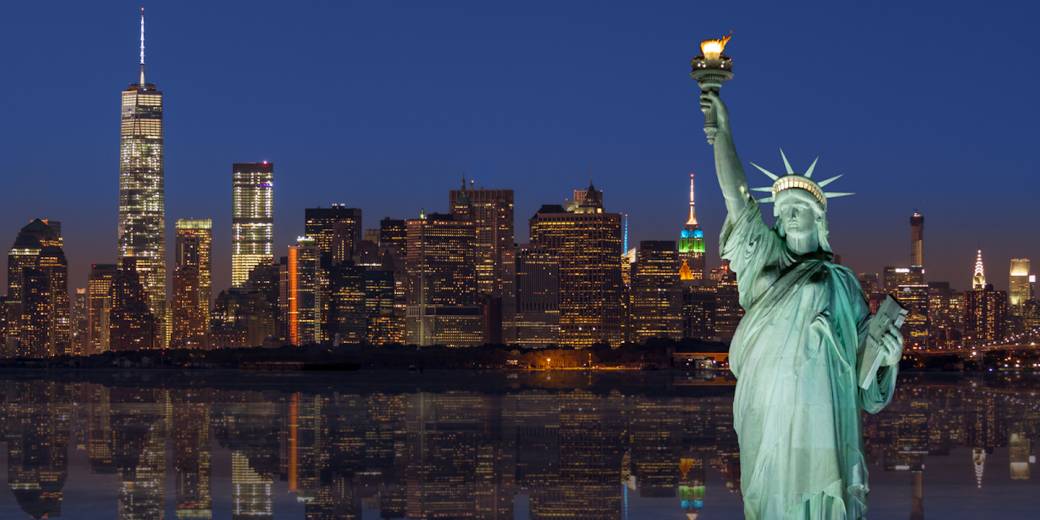Reputations and cities
02 July, 2019 Reading: 4:16 mins
Why do some cities have a great reputation and others not, and does that matter? And what can B2B brands learn from the great ones?
I’ve recently been lucky enough to be in New York for the first time, where the overriding feeling was ‘Am I on a movie set? Are they really like this?’ The next most common feelings were the energy of New York and the friendliness of the people. With over eight million souls crammed onto a few square miles I’d expected a Londoner’s quiet disdain for tourists, but people went out of their way to help us, chatted freely and served us well.

Why do some cities have a great reputation and others not, and does that matter? And what can B2B brands learn from the great ones?
I’ve recently been lucky enough to be in New York for the first time, where the overriding feeling was ‘Am I on a movie set? Are they really like this?’ The next most common feelings were the energy of New York and the friendliness of the people. With over eight million souls crammed onto a few square miles I’d expected a Londoner’s quiet disdain for tourists, but people went out of their way to help us, chatted freely and served us well.
So as with any brand, my perception of New York was shaped by my small interactions with it, and will stay with me for a long time. JFK’s grimy arrival terminals let the city down and display no glitzy ‘welcome to NYC’ banners – but the city itself is simply amazing and lived up to every stereotype: loud and crazy, beautiful and gritty. Maybe it felt this way because it seemed I’d seen it before: on average there are about a dozen film or TV shoots every single day in New York – over 4,000 a year. Despite the pressure for space the Mayor’s Office established the first-ever city film office in 1966: subsidising some work and making it easy for crews to set up and shoot outside (keeping the city on your screens while injecting $9 billion and 130,000 jobs each year to the city’s economy). New York delivered on the promise for me, and made me want to return. The old mantra still holds true: we define a brand like a bird’s nest, from the scraps and straws we pick up, and I’ll treasure my New York collection for a long time.
I arrived there from the recent PROI global conference I had attended in Quebec. The conference was brilliant and incredibly inspiring, and I’d been looking forward to speaking French again…but the city itself gave me a rare feeling: it didn’t make me feel that I wanted to stay any longer. The conference itself was fantastic but the city disappointed – the tiny historic centre was nice but overall it came across as a little lifeless with empty streets, bland architecture and so my collected scraps and straws of Quebec were a disappointment.
Meanwhile, as you pass through Dubai’s gleaming airport, 20-foot-high walls welcome you with slogans: Dubai is apparently where ‘tolerance meets respect’, ‘the happiest city in the world’. I was in transit so I’ve never left Dubai airport but I suspect this may not ring true for all – in Dubai’s case a quick news search shows an unusual range of things are banned and can lead to arrest (including imports of poppy seeds and pictures, starting rumours or swearing on WhatsApp), which may mean an unwelcome surprise. If I were working for the authorities there on their marketing, I think I’d focus either on something business-related or on something the city can certainly deliver for any visitor, such as desert travel experiences. So, my scraps and straws from Dubai may make me less likely to go back.
So while cities do need to invest to compete in an international marketplace for both tourists and inward investment, among the ‘brand bird nests’ in my head we have New York: the city-brand where the experience really delivers, Quebec that doesn’t make overt promises but in my experience still underwhelms and Dubai that in my view overclaims and makes me potentially want to avoid it. As marketers it’s always interesting to think about our own brands and prospects in this way: at the positive end, what are we doing to nurture brand advocates; in the middle, do we measure and deliver what we promise, and are we keeping an eye on that group who, for whatever reason, would promote competitors ahead of us - do we understand why?
Like all brands, a marketing team for a city needs to keep it real, ‘mine’ for outstanding, strong facts and experiences that make it stand out, and not over promise. In the end it’s all about delivering, and maintaining, a strong and positive reputation. If you’re looking to build your brand’s reputation why not give us a call?
